Rates and predictors of relapse after natural and treated remission from alcohol use disorders
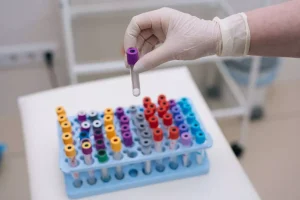
In addition to getting professional treatment, avoiding your triggers, finding social support, caring for yourself, and managing stress can help prevent future relapse. Good treatment programs plan ahead for this possibility by including relapse prevention in the process. Even though relapse is a well-recognized aspect of recovery from an addiction, many people attempting to quit an addiction will feel they have failed if they relapse.
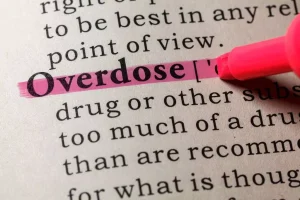
Stressful Situations

These are typically similar for most types of addiction, whereas the physical symptoms of acute withdrawal are often different and specific to certain substances. People who struggle with addiction need effective ways of tolerating, managing, and making sense of the negative feelings encountered in daily life. Alcohol, drugs, or addictive behaviors may have provided temporary relief from those feelings in the past, but you can’t rely on them anymore. Less-intensive treatment may be an option if this is your first relapse and you are in good physical and mental health, are not at risk for severe withdrawal, and have a sober support system in place. Your treatment team can help you decide whether inpatient, outpatient, or other treatment options are more appropriate for you. Such feelings sabotage recovery in other ways as well—negative feelings are disquieting and are often what drive people to seek relief or escape in substances to begin with.
Support for Me and My Family
Addiction recovery is most of all a process of learning about oneself. A better understanding of one’s motives, one’s vulnerabilities, and one’s strengths helps to overcome addiction. Creating a rewarding life that is built around personally meaningful goals and activities, and not around substance use, is essential.
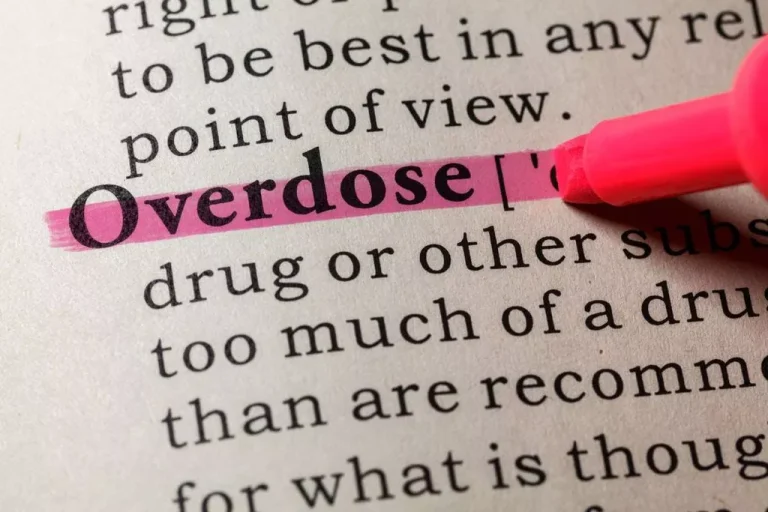
Recognizing the Signs of Relapse
– Once these triggers are identified, it is crucial to make efforts to avoid or minimize exposure to them. This may involve staying away from certain places or events, ending toxic relationships, or finding healthier ways to deal with stress. With CBT, you learn that recovery is based on practicing coping skills, not willpower.
- It’s not the same thing as a lapse, which is temporary and short-term — such as when you have one drink at a party, then go back to not drinking.
- Learning from the experience of relapse is essential in moving forward.
- Use of a substance delivers such an intense and pleasurable “high that it motivates people to repeat the behavior, and the repeated use rewires the brain circuitry in ways that make it difficult to stop.
- Sometimes, you unknowingly begin taking steps toward a relapse weeks or months before actually drinking or using drugs.
- The adaptations make the brain crave alcohol, which makes it harder to quit drinking.
Then, they might believe that drugs and alcohol will feel good and alleviate these negative feelings, and this chain of events can lead to a full-blown relapse where a person returns to uncontrolled use. They may not recognize that stopping use of a substance is only the first step in recovery—what must come after that is building or rebuilding a life, one that is not focused around use. They may falsely believe that their recovery is complete, or that cravings are a sign of failure, when in fact it takes time to rebuild a life and time for the brain to rewire itself and learn to respond to everyday pleasures. In general, the longer a person has not used a substance, the lower their desire to use.
- According to addiction treatment professionals, it is expected of at least 40 to 60% of people with substance abuse disorders and active addiction to relax in their first few years of sobriety.
- If an individual receives proper alcohol and drug addiction treatment, therapists, psychiatrists and other addiction specialists will work with the patient to address underlying mental health issues.
- Recognizing that relapse is not the end of the recovery journey is important.
- Perhaps most importantly, these supportive settings are where addicts talk and learn about the interventions and coping skills that work best in specific situations.
- But their lifespan can be measured in minutes—10 or 15—and that enables people to summon ways to resist them or ride them out.
Rates of remission and relapse

Nearly always there are recommendations for group support, as it is well-known that addicts don’t heal well in a vacuum. Instead, addicts need ongoing advice, feedback, and support from their peers (fellow addicts) if they hope to maintain the sobriety established in formalized treatment. Unfortunately, this critical element of the healing process is the aftercare recommendation addicts are most likely to skip. When people stop drinking or using drugs, the brain does not return tonormal. But with treatment and AA, thesepeople learn to manage the resulting symptoms. They manage stress with prayer and meditationand by living life one day at a time.
Do I Need to Go Back to Treatment?
The recovery journey doesn’t end with a minor slip-up, and it’s crucial that a person does not give in to negative emotions. As a result of these brain changes, a person experiencing drug or alcohol dependence will have a particularly difficult time maintaining sobriety—especially when faced with a psychological, physical, or emotional trigger. Living in a neighborhood with high substance use activity or near bars can increase the risk of relapse. Lack of structure and routine in daily life can also contribute to relapse, as individuals may struggle to fill their time with healthy activities. Relapse into alcoholism is less likely if you attend rehab, dedicate yourself to a recovery plan and avoid becoming overconfident in your ability to prevent relapse. People who become overconfident in their ability to stay sober may put themselves at risk by decreasing recovery meeting attendance, exposing themselves to triggers or trying to control how much they drink instead of abstaining.
- The more ACEs children have, the greater the possibility of poor school performance, unemployment, and high-risk health behaviors including smoking and drug use.
- Changing bad habits of any kind takes time, and thinking about success and failure as all-or-nothing is counterproductive.
- John C. Umhau, MD, MPH, CPE is board-certified in addiction medicine and preventative medicine.
- And you’re at greater risk when you try to quit drinking on your own.
- – Clearly communicate your needs and boundaries to avoid triggers or enabling situations.
- Finding healthy and constructive ways to manage stress, negative emotions, and cravings is crucial.
The study was published in 2014 in the journal Drug and Alcohol Dependence. Alcoholism is a chronic disease that takes months or years of treatment and support to recover from. It takes years to conduct studies on people recovering from alcoholism. That’s why 2017 and 2018 alcohol relapse statistics aren’t available yet.
Financial Consequences: Understanding the Impact of Day Trading Addiction
Establishing new habits going back to rehab is also key to enhancing long-term recovery. If a person experiences a noticeable change in their daily routine, it could be a cause for concern. They may become disorganized, neglect responsibilities, and show a lack of interest in activities they used to enjoy. If you or someone you know experiences a relapse, there are things that you can do to cope and get help. Robert Weiss LCSW, CSAT-S is Senior Vice President of Clinical Development with Elements Behavioral Health.
- Published in Sober living
Alcohol misuse Risks

While we attempted to control for these factors through statistical adjustments, residual confounding cannot be entirely ruled out. Future studies should aim to include a more homogeneous patient population or employ stratified analyses to better account for these variables. Thirdly, there are methodological limitations inherent to the use of publicly available datasets and retrospective analysis. For example, the integration of data from different platforms may introduce batch effects, and the study’s backward-looking design could lead to selection bias.
Is There Any Amount of Alcohol That’s OK to Drink?
As discussed above in the gene expression studies, the mechanisms by which ethanol exerts dose-dependent effects on the immune system could also include modulation of the hypothalamic-pituitary-adrenal (HPA) axis, which tightly regulates the stress response, in turn affecting immunity. Response to different stressors is mediated by several neural circuits that converge on the paraventricular nucleus (PVN) of the hypothalamus (Myers, McKlveen et al. 2014). The PVN regulates pituitary hormone production, including adrenocorticotropic hormone (ACTH), which binds to melanocortin type 2 receptors in the adrenal cortex to induce steroidogenesis in distinct layers (Dringenberg, Schwitalla et al. 2013). Primates have a threelayer adrenal cortex with cortisol being the primary glucocorticoid produced in the zona fasciculata (Nguyen and Conley 2008), which is released in response to stress (O’Connor, O’Halloran et al. 2000). Corticosterone is the main glucocorticoid involved in the regulation of stress responses in rodents (Smith and Vale 2006). Acetaldehyde is the toxic byproduct that contributes to tissue damage, alcohol dependence, and addiction (Zakhari 2006).

In This Article
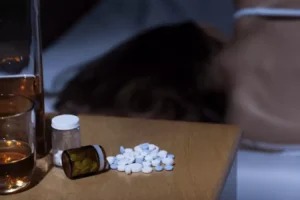
Alcohol immunosuppression can cause someone to catch a simple cold easier than other people or develop a more serious condition such as cancer or septicemia. These observations suggest that immune defects seen in individuals with AUD could also be mediated by nutritional deficiencies in addition to barrier defects and functional changes in immune cells. However, the contributions of each of these changes to increased susceptibility to infection in individuals with AUD remain to be determined. Vitamin E is one of the most effective antioxidants and its deficiency exacerbates freeradical damage impairing the ability of T cells to respond to pathogenic challenge (Mocchegiani, Costarelli et al. 2014). Similarly, vitamin C, also an antioxidant, is important for phagocytic activity of neutrophils and monocytes, and enhances T cell responses (Strohle and Hahn 2009).
Alcohol distracts the body from other functions
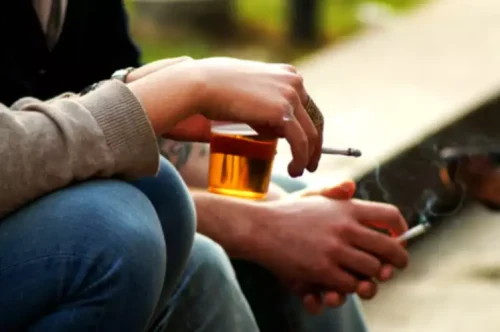
Drinking every day or drinking too much alcohol at a time may affect the immune system more than drinking every other day or every few days, but the healthiest thing to do is abstain from drinking completely. In a clinical case study reviewed in this issue, Trevejo-Nunez and colleagues report on systemic and organ-specific immune pathologies often seen in chronic drinkers. In such patients, alcohol impairs mucosal immunity in the gut and lower respiratory system. This impairment can lead to sepsis and pneumonia and also increases the incidence and extent of postoperative complications, including delay in wound closure. Bagby and colleagues review substantial evidence that alcohol further disrupts the immune system, significantly increasing the likelihood of HIV transmission and progression.
- In contrast, men who consumed a similarly moderate amount of beer for the same period exhibited a significant increase in basophils alone.
- As we said before, your immune system protects your body from unwelcome invaders and certain types of cancers.
- Heavy use of alcohol and immune system are, in fact, closely related in negative ways.
- Their article also highlights how the combined effect of alcohol and injury causes greater disruption to immune function than either challenge alone.
“Anything above that, regardless of time period, is exposing your body to more alcohol than is ideal,” says Favini. That said, evidence also shows that even smaller amounts of alcohol can affect the immune does alcohol weaken your immune system system. Alcohol has been flying off the shelves as people try to combat boredom during lockdown, with some reports estimating that alcoholic beverage sales surged by 55 percent toward the end of March.
- However, similarly to the in vitro studies described above, at 2 and 5 hours post-binge the numbers of circulating monocytes were reduced and levels of antiinflammatory IL-10 levels were increased (Afshar, Richards et al. 2014).
- This includes people who are pregnant, have alcohol abuse disorder, or are taking medications that interact with alcohol.
- Immune cell fractions in tumor samples were estimated using these algorithms, with cross-validation across different methods to ensure consistency.
- Although this chronic weakening of lung function may not cause any immediate symptoms, these effects can manifest when a severe respiratory infection occurs.
- They are also more vulnerable to developing cellulitis and surgical site infections.
Immune System Recovery After Drinking
This phenomenon was not observed in a TLR4 mutant mouse, indicating that the acute phase response is mediated by TLR4 (Pruett and Pruett 2006). As reviewed by Szabo and Saha, alcohol’s combined effects on both innate and adaptive immunity significantly weaken host defenses, predisposing chronic drinkers to a wide range of health problems, including infections and systemic inflammation. Alcohol’s widespread effects on immune function also are underscored in the article by Gauthier, which examines how in utero alcohol exposure interferes with the developing immune system in the fetus.
ZNF26-Associated Genes as Prognostic Signatures in Colorectal Cancer with Broad Therapeutic Implications
Adequate sleep helps the body fight off infections and viruses, and the less sleep you get, the less your immune system can protect your body. Monocytes express Toll-like receptor (TLR) 4, the PRR that is often responsible for recognizing LPS on the surface of Gram-negative bacteria. After binding to LPS, monocytes are activated and mature into macrophages that travel to the site of infection to secrete important cytokines for the inflammatory response. Several studies have demonstrated the dose-dependent effect that alcohol has on preventing both monocytes and macrophages from binding to the bacterial cell wall component lipopolysaccharide (LPS).
- Your liver detoxifies and removes alcohol from your blood through a process known as oxidation.
- The insights summarized in this issue of ARCR present researchers and clinicians with opportunities to devise new interventions or refine existing ones to target the immune system and better manage alcohol-related diseases.
- The immune system is typically categorized into the innate and adaptive immune response systems, both of which are essential components in the body’s defense against pathogens.
Single-cell RNA sequencing data from the GSE dataset were used to validate BEAN1 expression in immune cells within the tumor microenvironment. BEAN1 expression levels were compared among different cell types, including tumor cells, stromal cells, and various immune cells. These may include infections after surgery, traumatic injury, or burns; accelerated progression of HIV disease; adult respiratory distress syndrome and other opportunistic lung infections; and infection with hepatitis C virus, cirrhosis, or liver cancer (hepatocellular carcinoma).
ZFP1 is a biomarker related to poor prognosis and immunity in gastric cancer

In addition, alcohol significantly inhibits PMN phagocytic activity as well as the production or activity of several molecules (e.g., superoxide or elastase) that are involved in the PMNs’ bactericidal activity (Stoltz et al. 1999), so that overall bactericidal activity ultimately is reduced. The innate immune response to a pathogen is followed by an adaptive immune response that is activated only after the body is exposed to the pathogen for the first time and which is specific to that one pathogen. The innate immune response orchestrated by all these components provides the first line of defense against invading pathogens and plays a key role in the https://ecosoberhouse.com/ activation and orientation of adaptive immunity, as well as in the maintenance of tissue integrity and repair. Only if a pathogen can evade the different components of this response (i.e., structural barriers as well as cell-mediated and humoral responses) does the infection become established and an adaptive immune response ensues. Frequent and heavy alcohol consumption can suppress the immune system, making the body vulnerable to viruses and infections. Alcohol misuse can cause short-term effects such as the common cold or gastrointestinal complications, but it can also lead to more serious conditions such as cancer, septicemia, or, liver disease.
- Published in Sober living
Being Sober Versus Being in Recovery
Not completing all the modules means that the person has had no chance of doing the inner work that would have prepared him or her to cope with the stressors that prompted alcohol addiction in the first place. For many patients in recovery, drinking was a way of coping with the stresses in their lives. If these people do not learn alternative healthy coping mechanisms, they will naturally fall back to their old ways. They respond to stress by reaching out for a drink because that’s how they have “learned” to cope with it. According to the Semel Institute, about 75% of all people who struggle with alcohol abuse will develop some form of post-acute withdrawal symptoms. It means that most addicts with PAWS will manifest signs like depression, fatigue, or psychosocial dysfunction.

When I was in the throes of alcoholism, I was drinking around the clock, I had lost custody of my children and was unemployable. Alcohol remained my number one priority despite the many powerful negative consequences it brought into my life. The one thing that helped me to remain hopeful and to keep trying to stop and stay sober was compassion and unconditional love. Look at the power it has over your loved one and your family. There is nothing about their upbringing, or the last fight you had, or the daycare they attended as a child that made them get this way. This is a disease of the mind, body, and spirit, and it is greater than any human power.
Myths about sobering up fast
If you have noticed, many of these symptoms may be similar to that of being dry drunk. In the next section, we will discuss co-occurring disorders and why they are important to understand. Having a drink in hand can make socializing feel less intimidating. But opting for https://ecosoberhouse.com/ an alcohol alternative allows you to unwind without the negative physical and mental after-effects. But in recent years, sober curiosity, which encourages a sober lifestyle without necessarily requiring alcohol to be cut out completely, has become increasingly popular.
An alcohol overdose, also known as alcohol poisoning, can be fatal or lead to irreversible brain damage. Don’t allow the disappointments and mistakes of the past affect your choices today—circumstances have probably changed. However, for someone with an alcohol dependence, that expectation may turn out to be unreasonable. If the person is incapable of even being honest with themselves, it may not be reasonable to expect them to be honest with you. If you have children, it’s important to protect them from unacceptable behavior as well.
Eating and drinking
If they cannot cope with negativity healthily, they feel compelled to reach out for a drink. This syndrome is usually caused by no longer focusing on mental or emotional recovery. People may start to believe that since they are no longer alcoholics, there isn’t anything else that needs to be done, but suddenly they cannot brush off negative thoughts.
Alcohol consumption can impair coordination and decision-making. If a person chooses to consume alcohol, they should do so safely and take whatever steps are necessary to avoid putting themselves and others in harm’s way. Sleep also helps restore the sober alcoholic body’s ability to get alcohol out of the system. Eating before, during, and after drinking can help slow the absorption of alcohol into the bloodstream. This is because the body closes a valve at the bottom of the stomach when digestion occurs.
Aftercare programs for addiction recovery
The contemplative stage ends with the decision to make a change, yet further steps such as preparation, action, and later maintenance and likely relapse are usually needed before the addiction is controlled. Often, in trying to “help,” well-meaning loved ones will actually do something that enables someone dependent on alcohol to continue along their destructive paths. Make sure that you are not doing anything that bolsters their denial or prevents them from facing the natural consequences of their actions. If family members try to “help” by covering up for their drinking and making excuses for them, they are playing right into their loved one’s denial game.
- When she noticed an enormous improvement in her mental health, she cut out alcohol completely and has been sober ever since.
- These days, unless I’m feeling generous, I simply say, “I don’t drink,” and leave it at that.
- Sobriety doesn’t necessarily turn you into Liz Lemon, but it can give you the clarity to understand that you’ve been Liz Lemon your whole life.
- There are various addiction treatments available to help people achieve and maintain sobriety.
- The term “dry drunk” is used to describe a person who has stayed away from alcohol for some time but continues to behave as if he or she is still addicted.
- Published in Sober living
Sober Curious: What It Means, Benefits, and Tips for Living Sober
Sobriety means not being under the influence of a substance. However, the word is often used in different ways in different Art Therapy for Addiction: Painting Paths to Recovery contexts. Many 12-step programs suggest that sobriety means total abstinence—never using the substance ever again.

Learn more about our approach to alcoholism treatment or call our admissions navigators 24/7 to discuss your options today. All calls are 100% confidential and we are committed to making treatment accessible to everyone in need. Getting support doesn’t have to mean going to rehab, although that is an option. Support can also look like joining in-person and online support groups.
What is Sobriety?
Without the distraction of wondering when you can go get drunk or high, you’ll be able to stay physically and emotionally present with others. You’ll probably find that the important relationships in your life mean more to you than drugs or alcohol ever did. Many “normies” have recently made the shift https://accountingcoaching.online/alcoholic-ketoacidosis-wikipedia/ away from social drinking and towards intentional sobriety, and there is good reason for it. Of course, if you have struggled with alcohol abuse in the past you have even more of a reason to get and stay sober. It’s common to use substances as a way to cope with stress and mental health issues.
As such, extended stay drug rehab is strongly recommended by the US government. Even after being in recovery for a while, you may not be delighted with the changes you have made.4 In fact you may realize you don’t like being sober. For with changes comes adjustments, which can be challenging. So it may take some time before you truly feel content in your new life. But the following insights may ease your journey and improve your outlook. Addiction takes a toll on your relationships, and repairing the damage done is an important focus of treatment.
What Are the Benefits of Sobriety from Alcohol?
By prioritizing your well-being, you can overcome the challenges of addiction and embrace a fulfilling life. Nobody likes to think that they might end up with liver disease or other substance-related health problems. But people are diagnosed with these diseases every day, and if you abuse alcohol or drugs regularly, chances are high that you’ll eventually be one of them. When you’re sober, you don’t have to worry about developing life-threatening complications from your habits.
- Published in Sober living
Gratitude May Be the Key to Addiction Recovery
But it can be derailed quickly by those hopeless, negative thoughts, and the actions that go with them. Trapped in that mindset, an addicted person might think that there’s no point in trying to recover, because they’ll always use again. If you’re having difficulty staying clean or battling cravings, it might be best to seek help at a reputable drug rehab center.
- They then asked another group to write about the daily irritations or things that had displeased them.
- When you think or talk about your addiction, always follow up with where you are now.
- In fact, many people who abuse substances to fight these feelings also suffer from co-occurring mental health disorders such as depression, which creates its own set of symptoms.
- For example, you could thank a friend who supported you during a difficult time, write a note to a coworker who helped you with a project, or give a gift to a family member who made you laugh.
- If you are in recovery, you have accomplished so much just by being sober or trying to get sober.
At the same time, you should work to both forgive others who may have made things worse for you or said harsh things while you were addicted and work to reach closure with them. Our default mode is to look out for danger and try to anticipate what might go wrong. Ten people tell you it looks great and one person tells you it looks stupid. Practicing gratitude is a way of pushing against our natural tendency to dwell on the negative.
FAQs about The Power Of Gratitude In Addiction Recovery: Cultivating A Thankful Mindset
It’s important to point out that some hardship is a natural part of life. Without challenge and obstacles, we will never learn to stretch ourselves and grow. However, if you find that you’re always having a hard time, perhaps shifting your perspective can help. Every year at Insight we have a Gratitude Meeting the night before Thanksgiving. This tradition has been a significant part of our addiction treatment program for over 40 years. It is the one meeting a year that the entire family is together in the same room.
There are a number of ways to improve the quality and quantity of your sleep, including keeping a regular sleep schedule and practicing good sleep hygiene. If sleep problems persist, it’s worth discussing with your doctor or therapist. However, one way of improving the quality of your sleep is to practice gratitude. One study of more than 400 people between the ages of 18 and 68 found that people who felt more gratitude experienced better sleep quality and they slept longer. The results suggest that the primary reason for this is that more grateful people tend to experience more positive thoughts and fewer negative thoughts prior to sleep. This creates a virtuous cycle, since a well rested brain is more resilient and better at regulating emotions.
Gratitude improves your physical health.
Instead of focusing on material possessions or the things you’re missing out on, make a commitment to celebrate the things you do have. If you’re new to recovery, also make sure that you are active in your self-groups and regularly attending AA or NA. Secondly, gratitude has been shown to reduce levels of stress hormones such as cortisol and adrenaline. This makes sense when you consider that stress is often caused by worrying about what might happen in the future or dwelling on past mistakes. Gratitude allows us to live in the present moment and appreciate what we have right now. Are you looking for more ideas for how to stay committed to sobriety?
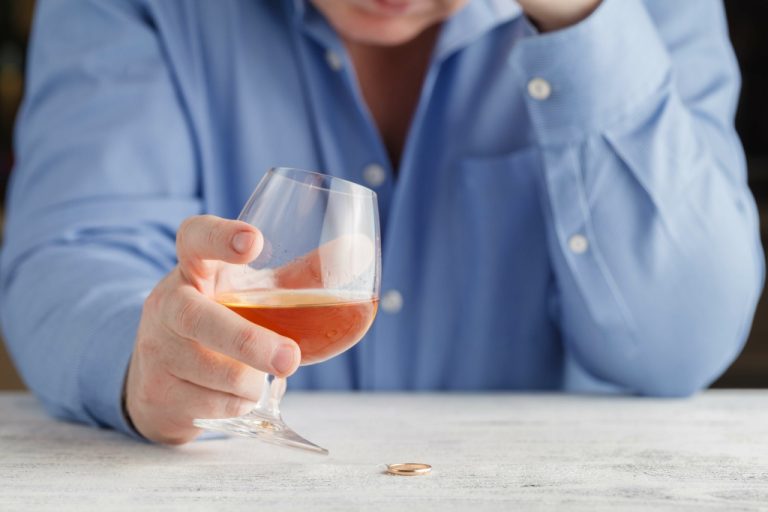
For example, Robert Emmons, a professor at the University of California, Davis, is one of the leading researchers in gratitude studies. He and his colleagues conducted multiple research studies regarding the impact of gratitude on physical health, psychological well-being, and our relationships with others. They tested whether the simple incorporation of gratitude journaling for 3-weeks would positively affect these areas of participants’ lives. Actively practicing gratitude fosters a mindset of positive thinking, and this can greatly improve mental and physical health. Being grateful helps us focus on the good and gives us energy and confidence.
Thank Your Way out of Addiction: How Gratitude May Be the Key to Recovery
Happy people arguably have one thing in common — they are grateful for what they have on any given day. As a recovering addict, developing a sense of gratitude about the things you appreciate may help you break free from the darkness of addiction. Gratitude allows an individual to celebrate the present and be an active participant in their life. No matter what your religious or spiritual beliefs, taking some time each day to say thank you to your Higher Power is a great way to cultivate more things to be grateful for in your life. This multiplies and before you know it your life is beyond your wildest dreams.
- Entering into recovery, addicts and alcoholics are directed to a healthier and more positive outlook.
- And no matter which way we choose to look, there will be plenty to be found of both.
- Practicing gratitude in recovery is not always easy, but it is always worth it.
- Active addiction can damage your physical and mental health, relationships, finances, and your self-worth.
- You might even decide to Have a gratitude journal yourself for a year and make notes on how your perspective and thinking changes over that year.
Most people with substance use disorder are likely to suffer from mental health conditions. If you also have a dual diagnosis, you must follow a collaborative treatment plan that can simultaneously address both disorders. You’ll also notice the small improvements you make, the support you get from friends and family and the beauty of sober living.
You can learn to be grateful for the healing journey and all the progress you make. If you’re searching for guidance on where to turn next during addiction recovery, ALYST Health is here to provide all the recovery resources you need. Our Certified Recovery Agents specialize in making rehab accessible to anyone with an at-home, concierge recovery approach. Your CRA can help you develop and practice gratitude as a daily part of your recovery plan. Give us a call to start developing a treatment program tailored to your lifestyle around our full suite of addiction recovery services. When properly cultivated, gratitude becomes an action of expressing your love for someone or something.
Individuals with active, supportive families have far better outcomes. Jonathon realizes that it’s impossible to move mountains overnight, but with gratitude and recovery the right support team and positive attitude, anything is possible. Gratitude is not just about saying thank you, it is much more than that.
- Published in Sober living


